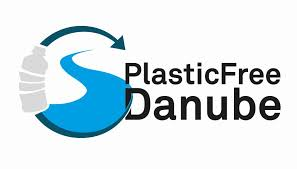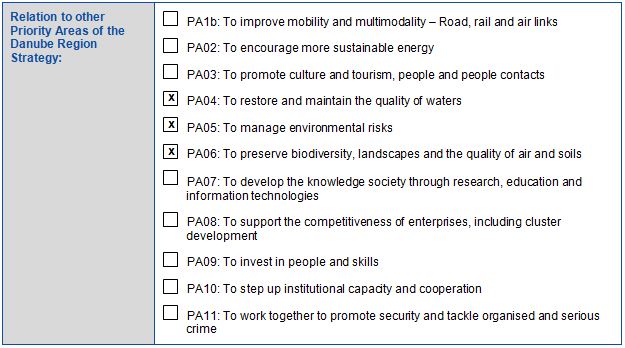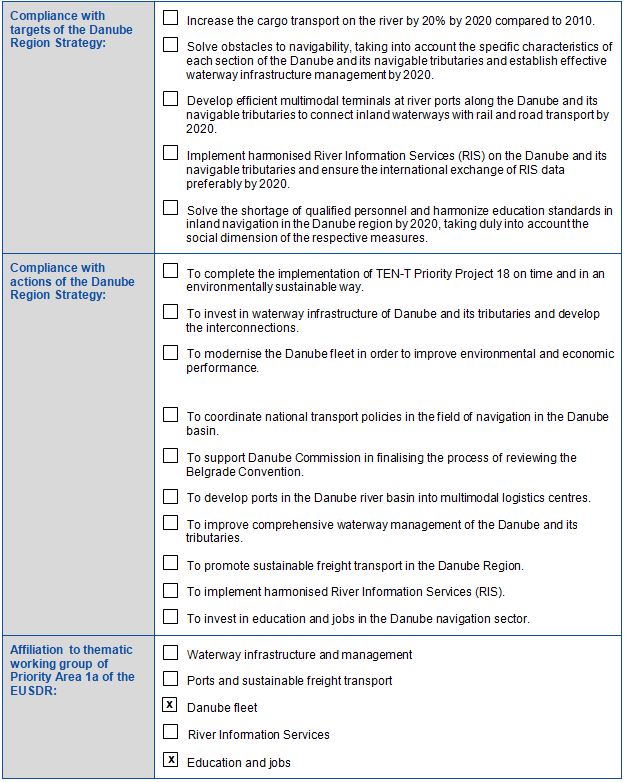BASIC PROJECT DATA
Project ID: PA1A145
NEED AND ADDED VALUE FOR THE DANUBE REGION STRATEGY
Estimations go that land-based sources account for up to 80% of the marine litter found in the world’s oceans. As rivers transport the waste from far inside the land to the oceans, the first step necessary to understand the contribution of land-based litter to marine litter is to conduct surveys along rivers.
In the riparian zone along the Danube anthropogenic litter is ubiquitous. However, at present no comprehensive study on amounts and sources has been conducted, although several voluntary clean-up initiatives regularly collect litter along the Danube and could contribute to a better understanding of the problem.
OBJECTIVE(S) OF THE PROJECT
The project “PlasticFreeDanube – Macro plastic waste in and along the Danube” gave an overall picture of the plastic waste transport in the Danube by combining information on waste generation, waste treatment, littering and waste held back by hydropower plants into a comprehensive material flow analysis. Once data on origin, amounts and composition of the waste entering the Danube between Vienna and Bratislava had been collected, measures to reduce this problem were developed and implemented.
The planned project area ranged from a few km upstream of Vienna to a few km downstream the hydropower plant Gabčíkovo in Bratislava and included the two metropolitan areas of Vienna and Bratislava.
The overall aim of the project was to establish a sound knowledge base on waste and the movement patterns of waste in and along the Danube in terms of quantities, threats (chemicals, additives, pollutants) and costs, so as to quantify the environmental and financial aspects of the problem and to identify the leaks in the chain “production – consumption – disposal” at several stages. The focus was on plastic waste, as preliminary studies showed that plastic constitutes the major waste fraction and the impacts of plastic on the environment are judged more important than the impacts of other waste fractions. In order to assess the composition of the waste, a standard protocol for measuring and sorting waste in and along rivers was developed, as no common procedures for rivers had existed – which made it difficult to compare different studies. Further, measures to reduce waste in and along the Danube were developed and implemented. One key outcome of the project was the development of a communication platform for initiatives that works against waste in and along the Danube in order to guarantee also after the end of the project the further exchange on the development of the amounts of waste along the Danube.
PLANNED PROJECT ACTIVITIES
Material Flow and Transport Modelling
- Description of the project area
- Development of a Material-Flow-Analysis (MFA) model
- Collection of available data for the MFA
- Material Flow Analysis
- Determination of potential plastic accumulation zones
- 3D hydrodynamic modelling
- Particle tracing and hydraulic characterisation of accumulation zones
- Design of hydraulic accumulation structures
Waste Sampling in and along Fluvial Systems
- Methodologies for macro plastic sampling and sorting
- Collection & sorting of macro plastic
- Collection of plastic passing the inlet grate of Freudenau or Gabcikovo
Analysis of the Collected Plastic and Impact Assessment
- Development of a methodology for the analysis of macro plastic
- Chemical analysis of macro plastic
- Analysis on the fragmentation and the abrasion resistance of macro plastic in fluvial systems
- Impact assessment
- Economic analysis
Policy recommendations & implementation of measures
- Scenario and measure development
- Development of action plans and policy recommendations
- Implementation of selected on-site measures
- Outlook Danube Basin
Capacity Building and Awareness Raising
- Stakeholder identification and clustering
- Awareness raising
- Capacity building
- Litter management platform
TRANSBOUNDARY IMPACT
- The project was carried out in the regions Vienna and Lower Austria in Austria as well as the Bratislava region in Slovakia.
- The public in this area was addressed in the framework of capacity building measures as well as information events.
- The models and sampling protocols developed in the project could be the base for other initiatives along the Danube and in Europe.
PROJECT BENEFICIARIES / TARGET GROUPS
- General public in the project area
- Ministries for environment in Austria and Slovakia
- Ministries for transport in Austria and Slovakia
- City councils of Vienna and Bratislava
- Federal state government of Lower Austria
- Municipalities along the Danube
- National and regional waste associations
- National and regional fishing associations
- National and regional tourism associations
- Environmental protection organisations
- Special interest groups on international level (e.g. ICPDR)
- Business organisations handling the waste (national and regional)
- Educational institutions on national and regional level
- Shipping industry
- Ports
STATUS AND TIMEFRAME
Start date: 01.10.2017
End date: 02.2021
The project is already concluded.
FINANCING
Total budget: 1,500,000 EUR
EU funds: 1,275,000 EUR are funded by INTERREG V-A Slovakia-Austria 2014-2020 (ERDF)
National funds: 225,000 EUR
PROJECT TEAM
Project leader: University of Natural Resources and Life Sciences Vienna (BOKU) (website: www.boku.ac.at)
Address: Muthgasse 107/III, 1190 Vienna / Austria
Project partner(s):
- via donau- Österreichische Wasserstraßen-Gesellschaft mbH
- Nationalpark Donau Auen
- Polymer Institute of the Slovak Academy of Sciences
- RepaNet o.z.
PROJECT ENVIRONMENT
STRATEGIC REFERENCE
- EU 2020
- EU Water Framework Directive
- CENTROPE
- EUSDR
- Action Programme for the Danube
RELEVANT LEGISLATION
The legislative framework contains relevant European, international and national rules concerning water protection and waste management.
EUSDR EMBEDDING
EUSDR COMPLIANCE
OTHER RELEVANT ISSUES
PROJECT REQUIREMENTS
For the successful completion of the project it is important to receive the necessary information concerning (plastic) waste from the national and regional waste handling companies. They shall be strategic partners to the project and participate by providing this crucial information.
FOLLOW – UP PROJECT
A follow-up project has not been discussed at this stage.
META DATA
Data provided by: Sabine Gansterer (viadonau / Austria) – 24.02.2017
Download pdf




